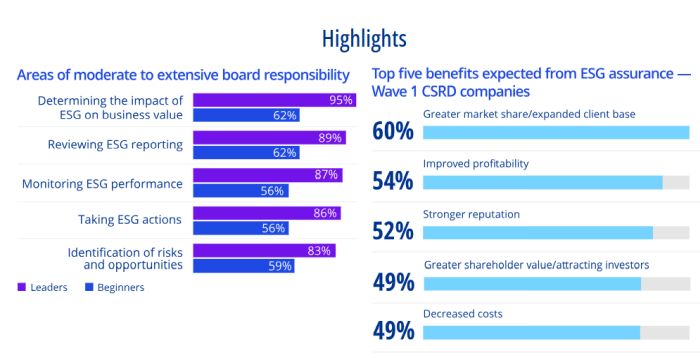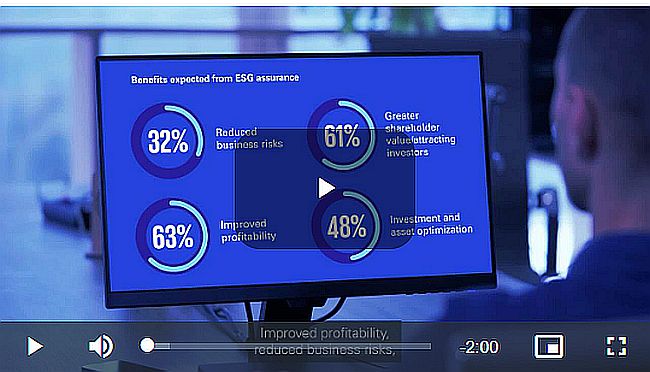- within Corporate/Commercial Law topic(s)
- in United States
- within Corporate/Commercial Law, Immigration and Technology topic(s)
ISSB | Sustainability reporting
Welcome to the third edition of the KPMG ESG Assurance Maturity Index. Since we inaugurated this series, significant developments have unfolded, and the sustainability landscape has shifted in decisive ways.
This year, KPMG surveyed senior executives and board members with ESG reporting and assurance knowledge at 1,320 companies across industries and global regions, with a mean revenue of US$16.8 billion. Of these, 310 companies identified that they reported and obtained assurance over their sustainability disclosures in accordance with the Corporate Sustainability Reporting Directive (CSRD) for financial years beginning on or after January 1, 2024 (Wave 1). We also expanded the sample size to include respondents from Africa, Mexico and the United Arab Emirates, to ensure representation from across each continent.
The Index captures a pivotal moment. As regulatory frameworks such as the CSRD and the International Sustainability Standards Board (ISSB) standards gain traction, organisations are being called to act — not merely react. The data reveals that while some sectors are advancing with confidence, others are still navigating early stages. Yet across the board, the message is clear: ESG assurance is not a destination, it is a journey that demands courage, clarity, and commitment.
ESG Assurance Maturity Index
KPMG ESG Assurance Maturity Index 2025

KPMG ESG Assurance Maturity Index 2025: China in Focus
Among the Asia-Pacific companies surveyed, 75% disclose sustainability information and 14% have obtained assurance. The report covers 80 companies headquartered in China, with a sustainability disclosure rate of 70%, of which 16% have undergone assurance processes.
The region's ESG assurance maturity score rose to 46.7 this year from 45.6 last year, reflecting the sustainability developments in China. Regulatory advances—including the "Basic Standard for Sustainability Assurance Engagements (Draft for Comments)" released by the Ministry of Finance of China, and the release of the Hong Kong Standard on Sustainability Assurance 5000 (HKSSA 5000) by the Hong Kong Institute of Certified Public Accountants (fully aligned with International Standard on Sustainability Assurance 5000) - are establishing a robust framework that supports the consistent delivery of high-quality sustainability assurance. Additionally, the Accounting and Financial Reporting Council (AFRC) is at the forefront of developing Hong Kong's regulatory regime for sustainability assurance.
These developments indicate a shift in China's market from voluntary to increasingly mandatory sustainability disclosures, with higher standards for both quantitative and qualitative ESG information. These measures are crucial in addressing the growing stakeholder expectations for the reliability and transparency of disclosed ESG information.
The content of this article is intended to provide a general guide to the subject matter. Specialist advice should be sought about your specific circumstances.






